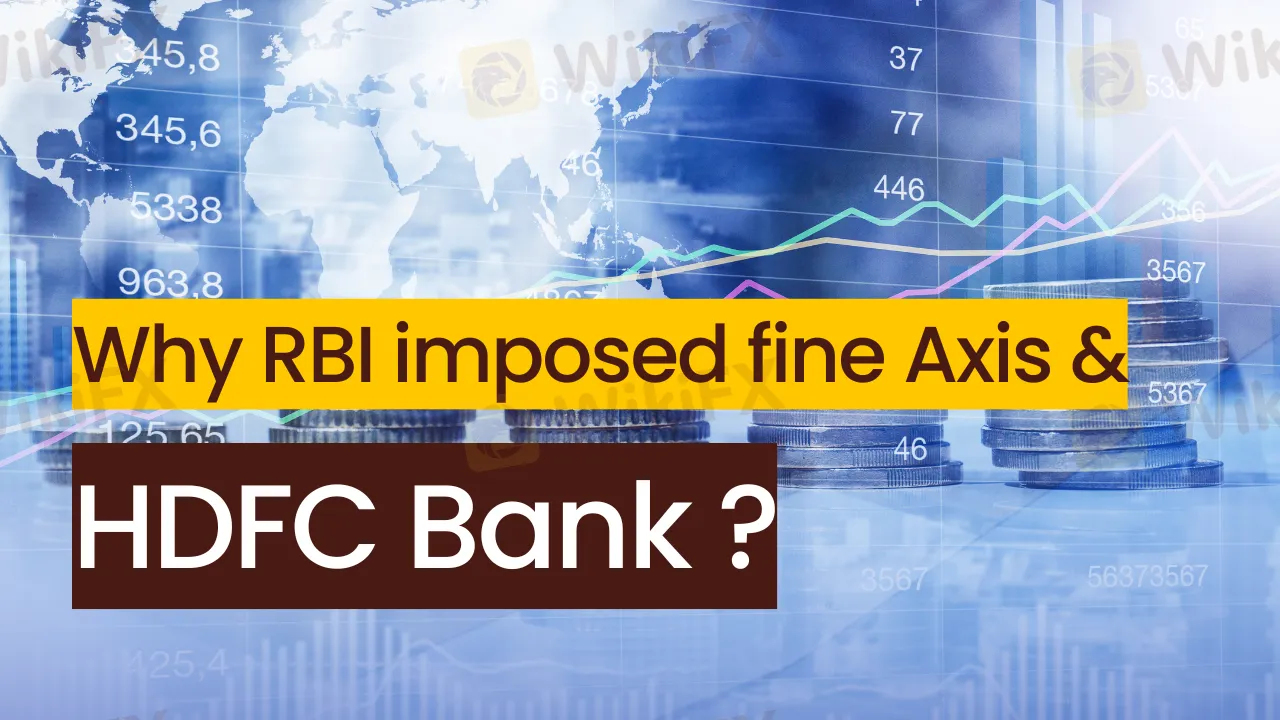简体中文
繁體中文
English
Pусский
日本語
ภาษาไทย
Tiếng Việt
Bahasa Indonesia
Español
हिन्दी
Filippiiniläinen
Français
Deutsch
Português
Türkçe
한국어
العربية
Why RBI Imposed fine on Axis & HDFC Bank?
Abstract:The Reserve Bank of India (RBI) has issued penalty on two well-known Indian banks: Axis Bank and HDFC Bank. The fines were imposed due to noncompliance with specific RBI laws and standards.

The Reserve Bank of India (RBI) has issued penalty on two well-known Indian banks: Axis Bank and HDFC Bank. The fines were imposed due to noncompliance with specific RBI laws and standards.
According to the press release of RBI, The Reserve Bank of India (RBI) has, by an order dated September 03, 2024, imposed a monetary penalty of ₹1,00,00,000 (Rupees One crore only) on HDFC Bank Limited (the bank) for non-compliance with certain directions issued by RBI on ‘Interest Rate on Deposits’, ‘Recovery Agents engaged by Banks’ and ‘Customer Service in Banks’ read with the BCSBI Code and ‘Guidelines on Managing Risks and Code of Conduct in Outsourcing of Financial Services by banks’. This penalty has been imposed in the exercise of powers conferred on RBI under the provisions of section 47 A (1) (c) read with section 46 (4) of the Banking Regulation Act, 1949.

The Reserve Bank of India (RBI) has, by an order dated September 3, 2024, imposed a monetary penalty of ₹1.91 crore (Rupees One crore and ninety-one lakh only) on Axis Bank Limited (the bank) for contravention of provisions of Section 19 (1) (a) of the Banking Regulation Act, 1949 (BR Act), and non-compliance with certain directions issued by RBI on ‘Interest Rate on Deposits’, ‘Know Your Customer (KYC)’ and ‘Credit Flow to Agriculture- Collateral free agricultural loans’.

About RBI
The Reserve Bank of India was established on April 1, 1935. The Preamble of the Reserve Bank of India describes the basic functions of the Reserve Bank as:
“to regulate the issue of Bank notes and keeping of reserves with a view to securing monetary stability in India and generally to operate the currency and credit system of the country to its advantage; to have a modern monetary policy framework to meet the challenge of an increasingly complex economy, to maintain price stability while keeping in mind the objective of growth.”
Download WikiFX app now to stay updated on the latest forex news and make informed trading decisions.

Disclaimer:
The views in this article only represent the author's personal views, and do not constitute investment advice on this platform. This platform does not guarantee the accuracy, completeness and timeliness of the information in the article, and will not be liable for any loss caused by the use of or reliance on the information in the article.
WikiFX Broker
Latest News
Wolf Capital Exposed: The $9.4M Crypto Ponzi Scheme that Lured Thousands with False Promises
Confirmed! US December non-farm payroll exceeded expectations
Spain plans 100% tax for homes bought by non-EU residents
90 Days, Rs.1800 Cr. Saved! MHA Reveals
The Yuan’s Struggle: How China Plans to Protect Its Economy
LiteForex Celebrates Its 20th Anniversary with a $1,000,000 Challenge
400 Foreign Nationals Arrested in Crypto Scam Raid in Manila
Singapore Blocks Polymarket Access, Following U.S. and France
OneZero Collaborates with Ladies Professional Golf Association (LPGA)
Housewives Scammed of Over RM1 Million in Gold Investment Fraud
Currency Calculator






